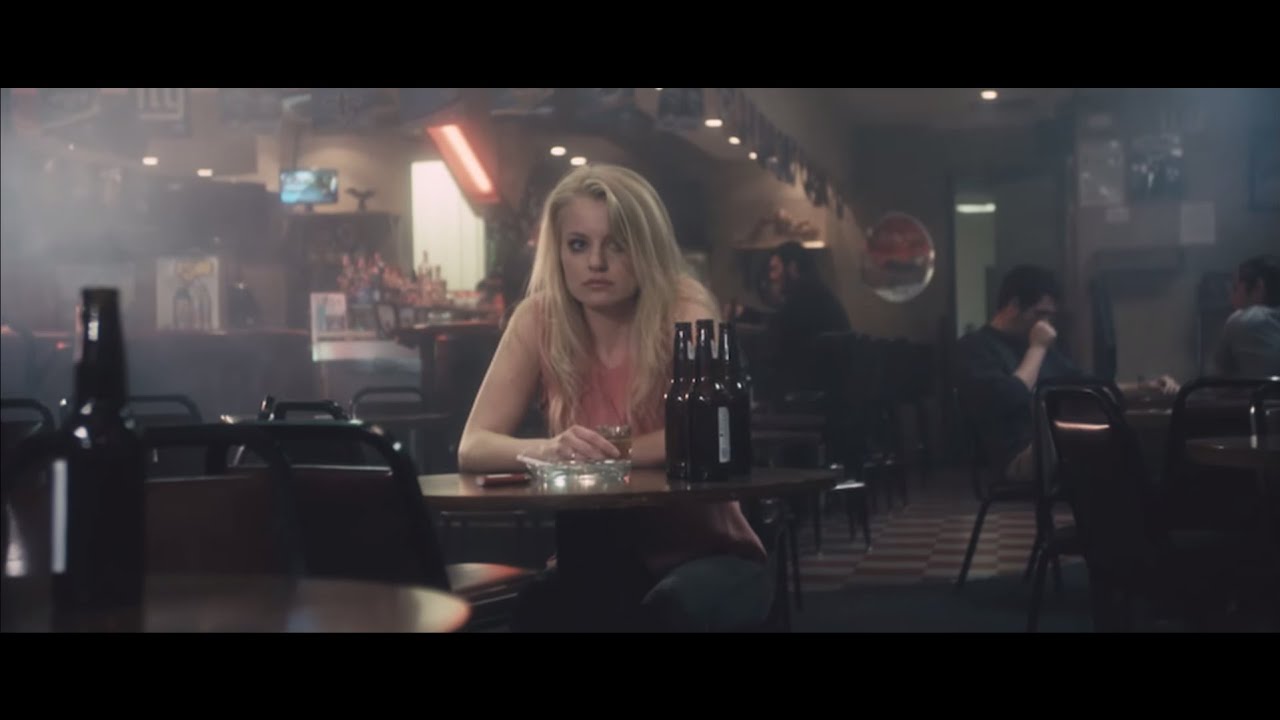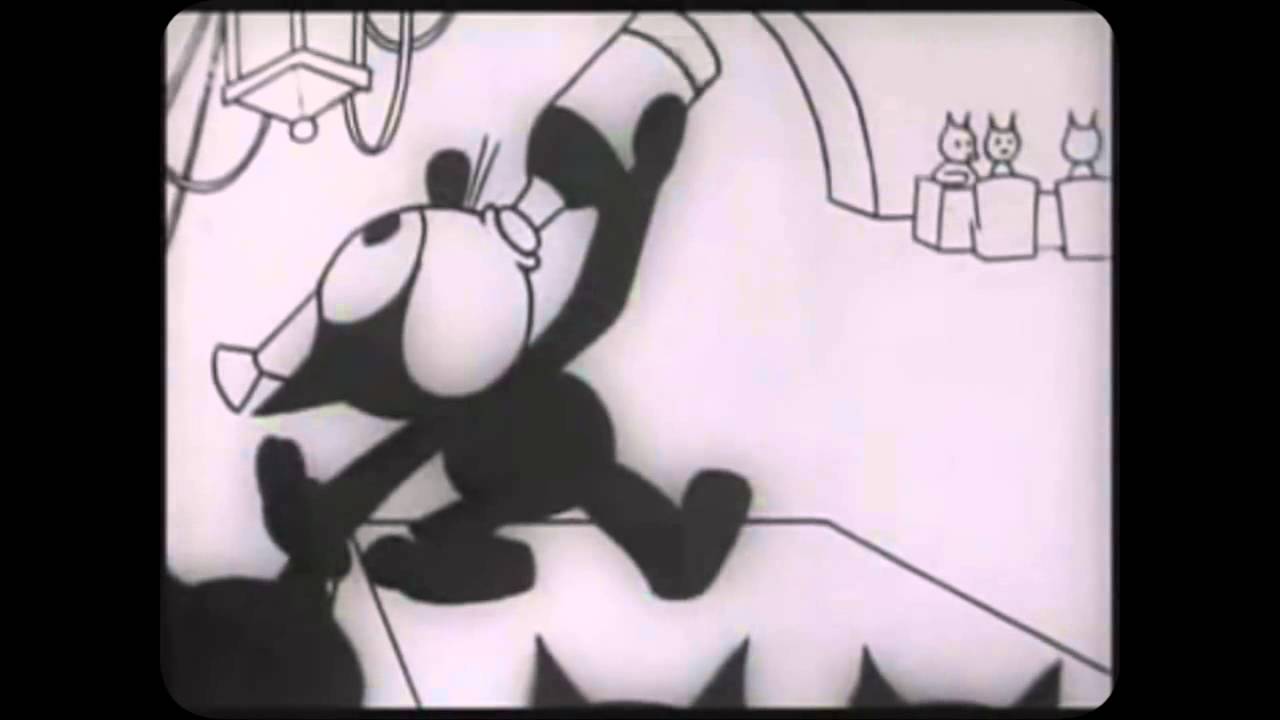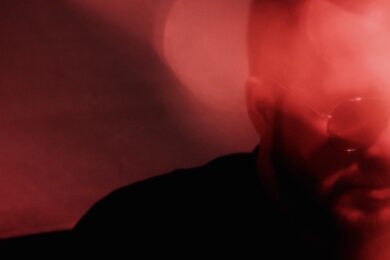Two songs into an album launch show in his newly adopted hometown, BC Camplight – or Brian Christinzio – turns to the fun-fuelled Friday night crowd and says: "Things were tough for me a while ago. I was close to going away, er, permanently. But then Manchester saved me."
Christinzio’s honesty is greeted by a hearty roar, and he responds to the bonhomie by launching into the sublime ‘Just Because I Love You’, one of several standout tracks from his third album, How To Die In The North, recently released on Bella Union.
The album’s title is misleading. Since arriving in Manchester from the US three years ago, Christinzio has flourished in the north of England. From the brash pop of the opening ‘You Should Have Gone To School’ to the breathtaking piano ballad finale of ‘Why Doesn’t Anyone Fall In Love’ via psych-rock, soul and a splash of surf pop, How To Die In The North brims with self-confidence as it deftly hops between genres.
Christinzio’s career hasn’t always been an upward curve of sold-out album launch shows. Originally from New Jersey, BC Camplight released two albums of Beach Boys-inspired pop on One Little Indian (2005’s Hide, Run Away and 2007’s Blink Of A Nihilist). Disappointing sales resulted in Christinzio slipping out of public view and coincided with a self-confessed propensity for self-sabotage that saw him spiral into depression and substance abuse, and left him squatting in a disused Philadelphian church.
Christinzio describes himself as "the guy who blew it" and it would take an exchange of Facebook messages with a Mancunian fan to set him on an unlikely path of salvation. A week after those messages, Christinzio landed unannounced at Manchester Airport and headed to a pub in the city’s Northern Quarter, where he became a regular fixture at the end of the bar. The pub is also where he met his future band "of brilliant, dirty Mancs".
A week before the album launch, I met up with Christinzio in another Manchester bar. It’s a Sunday afternoon and while tablefuls of roast dinners are demolished around us, I nurse a coffee and listen as the unassuming Christinzio barely conceals his delight at his second chance.
You released two albums on One Little Indian several years ago. Looking back, how would you describe them now?
Brian Christinzio: They were naive and a bit more playful than I am now. A producer told me a long time ago that I’d be really great if I would just get bit by a dog. I didn’t really know what he meant, but now I do. Those records are good but I hadn’t lived at all. It showed – it sounded like someone who had a lot of ideas, but they weren’t rooted in me. They were more mystical and abstract. But, I am proud of them.
You’d signed to a record label with a great reputation. How was that experience?
BC: It was odd. I didn’t know what to expect from record labels. I thought signing a record deal meant I’d made it and I was going to be famous. I didn’t understand the process and the whole experience wasn’t the most pleasant thing.
You’ve described yourself as "the guy who blew it". What happened?
BC: After the 2007 record came out, and being fairly entitled and thinking I was great, I assumed I’d do a third one. Then the record company were just like, "Nah". So I asked who would do the next record and every other label kind of stared at their feet. That was the start of the spiral down. But, by that point, I had already begun to self-sabotage. I cancelled a tour. I was convinced I was dying. I had all these insane phobias and would lock myself in my room. I know it sounds lame and I’m always afraid to tread that line of the ‘messed-up guy’, but it was true. I didn’t leave my house for about a year. I was fairly ill. But, that wasn’t directly due to no one being interested in putting my music out anymore. I lost interest in my music long before anyone else did.
How did you turn it around?
BC: There was a point where, and it was as bad as it sounds, I was squatting in a church in Philadelphia and I running electricity through the wall so I could get on my computer. I was lying there one night and a fan in Manchester Facebooked me asking if I was ever going to record anything again. We messaged back and forth and he suggested I come to Manchester. I had always had a pretty good time when I toured there so about a week later I just showed up. I had no plan – the fan set me up with an apartment – and had literally no idea what I was going to do. I knew no one except him and I’d only met him twice. So, the fact that we are here now and my record is out and people seem to be into it is very, very surreal to me.
What impact has relocating to Manchester had on you as a songwriter?
BC: The city has been a huge influence on me. I wrote all the songs in Manchester. I haven’t had a bad day since I’ve been in Manchester. It was about being here and finally having a sense of newness, which I hadn’t had in years and years. I was excited. When I’m down, I’m different to other songwriters – I don’t write. I need to be excited and feel that I have something to prove. Once I got here, I just felt as if a huge weight had been lifted off me and I slowly started to think that I had something really good in my head. Nothing had been in there in years. I visited Eve Studios [in Bredbury] on a tip from a friend and I was messing around on a piano and a guitar. Every time I started to play, things started gushing out of me. It was completely effortless, as if someone had unplugged a seven-year blockage. The songwriting wasn’t a labour-intensive thing at all. The songs fell out and all I had to do was take all the pieces and arrange them.
How did it feel to have these songs gushing out?
BC: Once I started hearing the record I felt I should feel really good and excited. But I listened to it and thought, Goddammit – that’s really good but no one is ever going to hear it. That’s all I could think. I remember when we finished recording ‘Just Because I Love You’ and I listened to it all the way through, I knew for a fact that no one would ever hear the song. It was great to be doing music again from a creative standpoint, but it wasn’t until I got that email from Bella Union that everything changed.
Tell me about the Bella Union email.
BC: I sent the album out to a few people but I specifically targeted Simon [Raymonde, Bella Union boss], just because I love that label. I sent him the record and asked him to listen to it. One or two days went by and there was no reply. I was thinking, Fuck that guy, he doesn’t get it. Then three days later he sends me a six-page email which basically said my album could be the best thing Bella Union ever puts out and that he wanted to release this record and any record I ever do for the rest of my life. Between 2007 and 2013 I was not in a good spot, and this was as if someone just turned on the switch. I knew that people would hear my record now and it felt good. I couldn’t be happier.
I read that you had a pretty average childhood and that you were captain of the football team at high school…
BC: Yes, I was an offensive and defensive tackle, which is basically one of the big guys who smash into each other. I was insanely normal and stable during my high school period. My girlfriend at the time was the captain of the cheerleader squad and the homecoming queen – which made me the homecoming king.
I have a theory that the records you love as a child shape all your future music preferences. What type of music did you hear from your parents as a small child?
BC: When I was kid I was addicted to my mum’s records. It was all Jerry Lee Lewis, Little Richard, Harry Nilsson – early rock & roll and some soul. My dad had a lot of theatre stuff and opera. Basically, if you put all that together you have my record, so maybe your theory is correct.
You once did a show comprising entirely of Harry Nilsson songs. How was that?
BC: The Harry Nilsson show was the last show I did in Philadelphia. Some of the songs are on YouTube. It was a great concert, but it was really sad. I’m looking at myself and I was twice the size I am now with huge bags under my eyes. I was probably on god-knows-what drugs and I just feel so sorry for that guy. Even though it wasn’t my own music I felt like I’d gone out on a high. It sold out and everyone seemed to enjoy it. And that was it. I retreated into my church for six months before coming here.
When I listen to How To Die In The North, many of the songs seem to be documenting struggles with the concept of love. Why is that?
BC: Up until recently, my life had been a complete train-wreck when it came to relationships. In particular, I was once seeing someone for the longest time back in Philly and, to put it bluntly, she was gay. For some reason I never accepted that and it became another self-sabotage thing. I am really attracted to people who can do me no good. So, when I was writing these songs about love, a lot of them were dealing with my terrible experiences in that area and admitting that I have no idea what love is.
The other thing that strikes me about the album is that you seem to cover nine different styles over the nine songs. Was it always your intention to produce such an eclectic record?
BC: That was very intentional. I knew when I started making the record that doing that would cause enmity in half the reviewers. I know that people might think it’s scattered or disorganised, but it’s not – at least in my head it’s not. It was deliberately done like that. It’s a little bit frantic but it’s supposed to reflect me during that period. Sometimes I felt one way, sometimes the other. Sometimes I was manic, sometimes I was the opposite of manic. And that is the record – it’s just me.
You spoke earlier about your propensity to self-sabotage. Could that behaviour pattern happen again – can you spot the signs?
BC: I can see it coming. I have a kind of prodrome phase, where my OCDs will start to get worse, or I begin to not hang out with friends. I have to tell myself to go out and not stay in. I have instincts to turn down shows and anything big that comes my way because I think it’s too much. But I’m over all that. I’m ready to give this everything I’ve got.
How To Die In The North is out now on Bella Union. BC Camplight tours the UK next month:
MARCH
Sun 8 – Louisiana, Bristol
Mon 9 – Hare & Hounds, Birmingham
Tue 10 – Lexington, London
Wed 11 – Leaf, Liverpool





